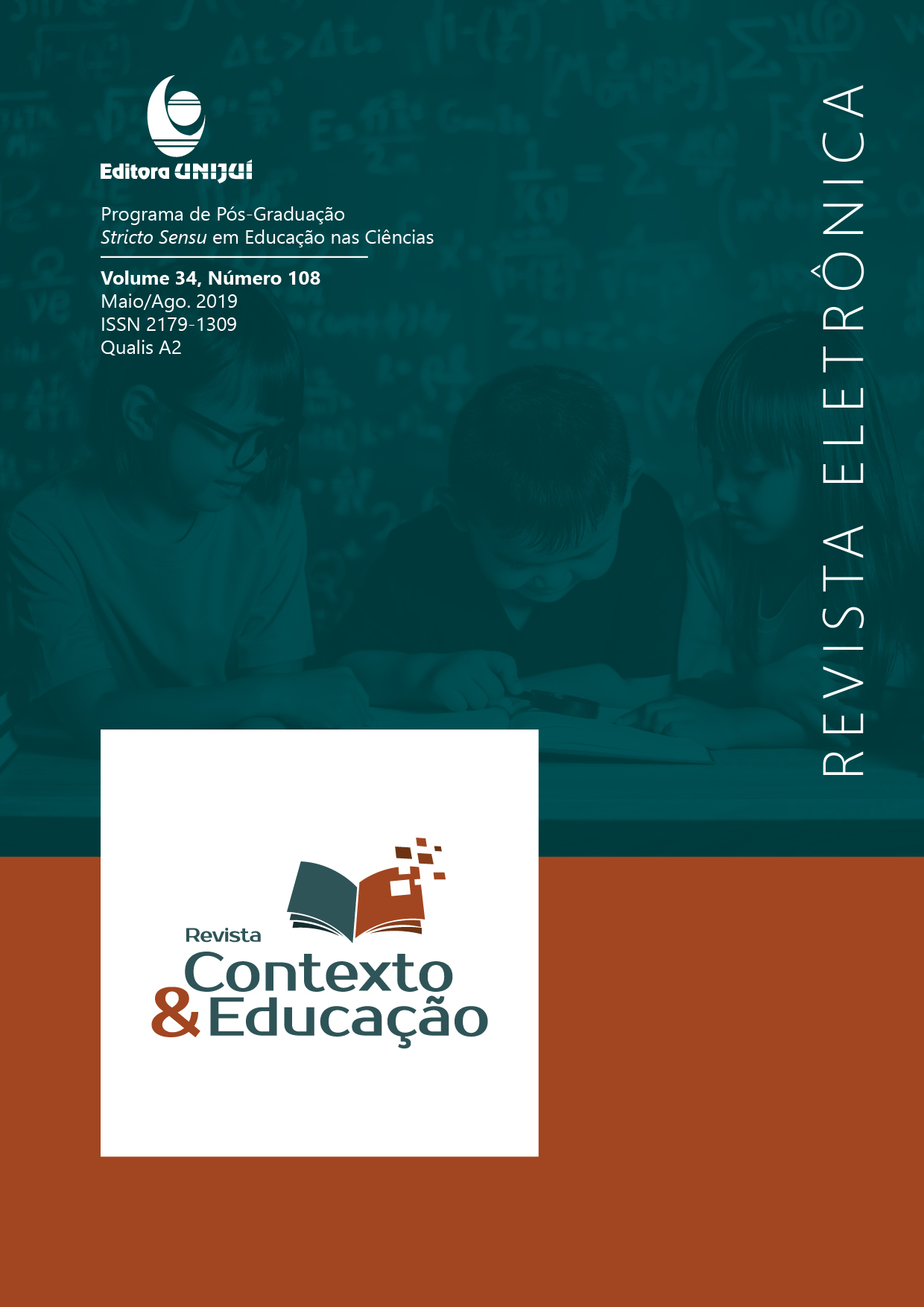CAPOCIÊNCIA: O POTENCIAL INTERCULTURAL ENTRE A EDUCAÇÃO EM CIÊNCIAS E A EDUCAÇÃO PARA AS RELAÇÕES ÉTNICO-RACIAIS NA FORMAÇÃO DE PROFESSORAS
DOI:
https://doi.org/10.21527/2179-1309.2019.108.104-121Keywords:
capoeira, educação em ciências, relações étnico-raciais, interculturalidade.Abstract
This article analyzes the interface between ethnic-racial relations and science education in the discourse of teachers working in elementary school , after experiencing in-service training called Capociencia based on Brazilian law 10.639 / 03, which deals with the obligation to insert afro-brazilian history and culture in the school curriculum, and in the presuppositions of scientific literacy imbricated in the approach Science, Technology and Society (STS) that presses for the articulation between these three instances. From the theoretical framework of critical interculturality, the manifestation of capoeira was delineated as a cultural artifact representing the ancestral knowledge of the afro-brazilian matrix, as well as aspects of education in science in the bias of culture. In this context, we conducted a Content Analysis of questionnaires answered by the project participants that resulted in the construction of three categories, namely: Didactic Formative Aspects, Personal Development and Training, Racial Ethnic Relationships and Citizenship, which evidenced the "Cultural border crossing" and the establishment of intercultural dialogues in order to privilege a horizontality of knowledge and mutual resignification between knowledge of traditional afro-brazilian matrix and education in science.
Downloads
Published
How to Cite
Issue
Section
License
By publishing in Revista Contexto & Educação, authors agree to the following terms:
All works are published under the Creative Commons Attribution 4.0 International License (CC BY 4.0), which allows:
Sharing — to copy and redistribute the material in any medium or format;
Adaptation — to remix, transform, and build upon the material for any purpose, even commercially.
These permissions are irrevocable, provided that the following terms are respected:
Attribution — authors must be properly credited, a link to the license must be provided, and any changes made must be indicated.
No additional restrictions — no legal or technological measures may be applied that legally restrict others from doing anything the license permits.
Notices:
The license does not apply to elements that are in the public domain or covered by legal exceptions.
The license does not grant all necessary rights for specific uses (e.g., image rights, privacy, or moral rights).
The journal is not responsible for the opinions expressed in the articles, which are the sole responsibility of the authors. The Editor, with the support of the Editorial Board, reserves the right to suggest or request modifications when necessary.
Only original scientific articles presenting research results of interest that have not been previously published or simultaneously submitted to another journal with the same purpose will be accepted.
Mentions of trademarks or specific products are intended solely for identification purposes and do not imply any promotional relationship by the authors or the journal.
License Agreement (for articles published from October 2025): Authors retain the copyright to their article and grant Revista Contexto & Educação the right of first publication.


